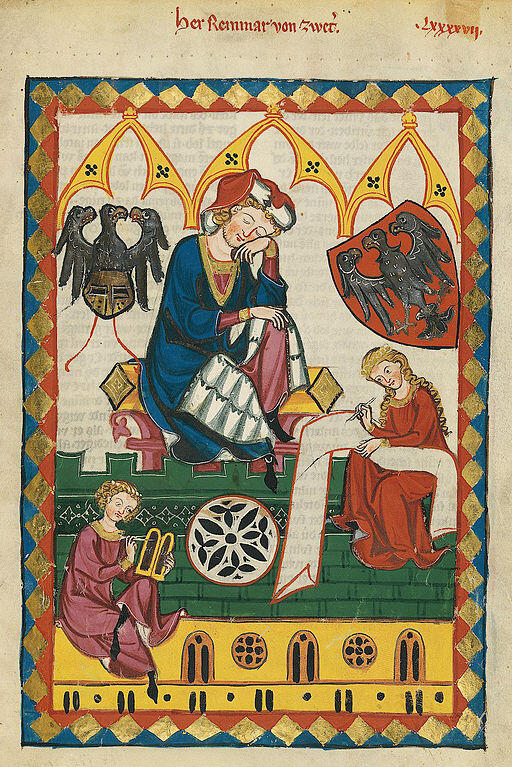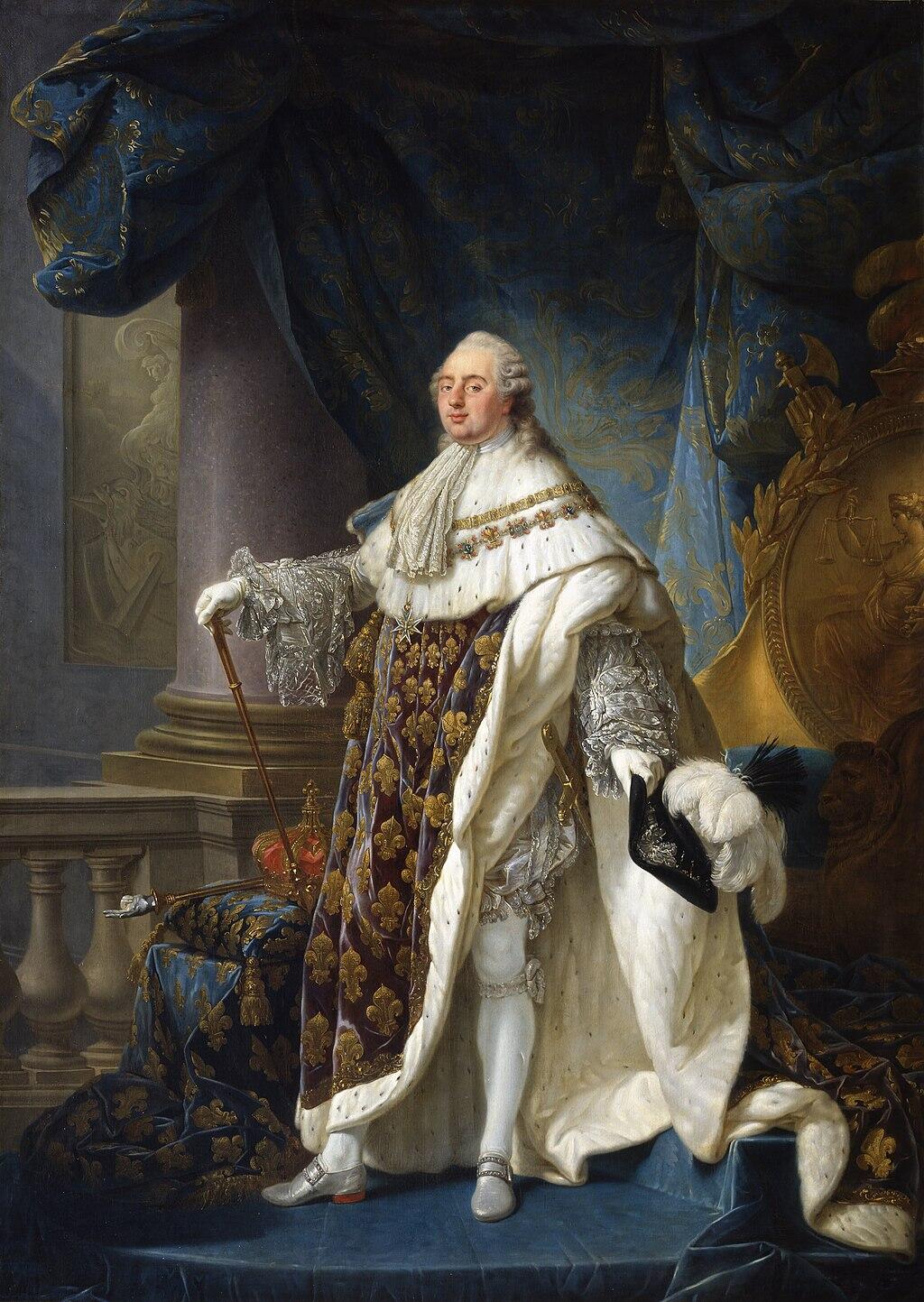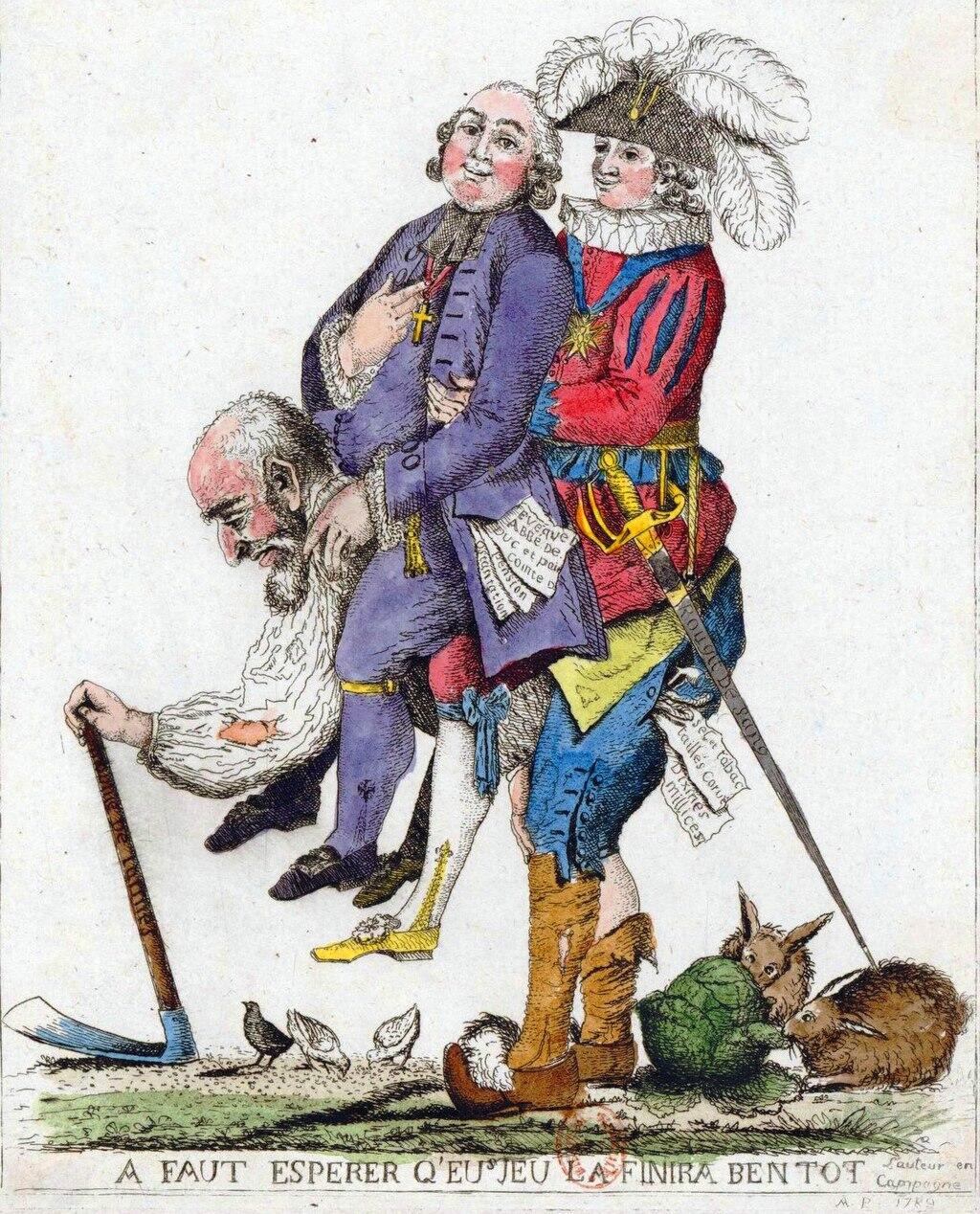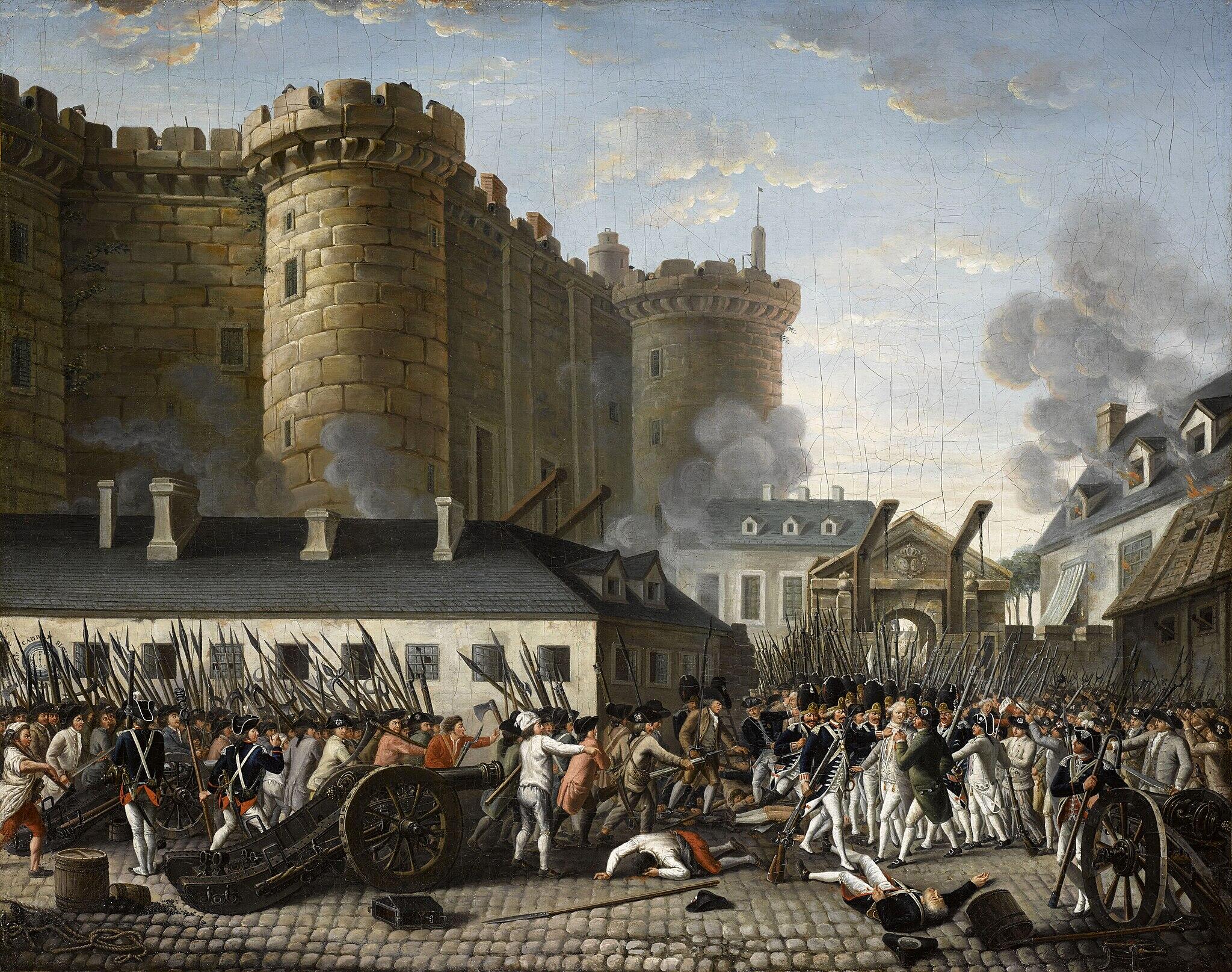At the start of the 18th Century, France was a crowded place. It had 26 million people within its borders, and grew by another 10 million or so as the century wore on. Disease, lack of food and opportunity, and gross inequality ruled the day. Mixing all that with weak leadership, corruption, and Enlightenment ideas made the time ripe for revolution.

Life in Pre-Revolution France

Feudalism had been the overarching social structure in Europe throughout the Middle Ages. This system comprised three main 'realms': lords, vassals, and fiefs. These, in turn, were grouped into three 'estates': the clergy, the nobility, and the peasantry.
Other European countries had already begun - or completed, the dismantling of their feudal societies. By contrast, France's feudal system evolved into a complex structure of regional holdings.
This allowed landlords to charge for everything, including fees for crossing attached woodlands, and travel dues.
Lesser lords privatised states' rights, and imposed their own laws.
As the Seigneurs took control of these lands, they established taxes, fees, and laws to suit their economic and political ambitions. This power fragmentation was not universal. Still, enough of France was thus marked, to make peasants' lives and prosperity difficult.
As merchants, manufacturers, and other commoners grew wealthier, they began to question their lack of political power. This bourgeoisie began contemplating advanced ideas the Enlightenment thinkers had laid out.
A few peasants owned land, and they wanted the same rights as other landowners. They also wanted to expand their holdings, something the laws of the day forbade.
As living standards improved, France's mortality rate dropped. This led to a rapidly growing population. Paris alone counted 600 000 residents.
Thanks to this population explosion, the growing demand for food and amenities drove the economy to a crisis point. Starting around 1770, riots and revolts became more frequent. Out of them grew calls for social reform.
Which reforms to implement? People at all levels of society had various ideas. These debates continued through the revolution's Reign of Terror, and into the forming of successive French Republics.
All of these factors provided kindling to set the French landscape ablaze. Political, social, and religious structures would all change, once revolutionary fires died down.
Causes of the French Revolution: a Weak Monarchy
The House of Bourbon claimed the French monarchy in the 16th Century. While other kings before them tried to instil the belief that kings ruled by divine right, they could never completely pull it off. The Bourbon Kings managed the feat so well that, by the time of the French Revolution, the belief had become entrenched.
Other kings relied on their court - counts, dukes, and other higher nobles, to make decisions. For the Bourbon kings, the divine right to rule meant that their power was absolute.

The Bourbon dynasty rulers decided everything unilaterally, perhaps after listening to advisors. But, certainly with arguments from all sides, as the rulings typically angered one faction or another.
By all accounts, the last Bourbon King, Louis XVI, was inept. Soon after he ascended to the throne, he tried to reform the French government, and remedy the country's financial struggles. His efforts enraged the nobility, who succeeded in blocking his efforts. Other failed initiatives, and their effects, include:
Initiative
- tolerance towards non-Catholics
- deregulating the grain market
- support for American colonists
- higher taxes on the commoners
Effect
- incensed the clergy
- increased bread prices
- financial crisis
- citizens' revolts, including storming the Bastille
Despite being an absolute monarch, Louis XVI was plagued with indecisiveness. He often deferred to his wife, Marie Antoinette, in matters of state and finance. In fact, her hands in state coffers was one of the reasons for Marie Antoinette's death by guillotine, when the monarchy fell.
Representatives from the three Estates ran roughshod over the king, rejecting and denouncing his every proclamation. At the very least, they treated him with the utmost disdain. Weak, ineffective leadership is one of the causes of the French Revolution.

How Did the French Revolution Start: Economic Hardship

King Louis XVI did not inherit a healthy treasury, thanks to his father's wild spending. Still, we might believe he had good intentions when he tried to reform the monarchy's finances.
But, his initiatives caused substantial economic grievance, at every level of society. We see the scorn for royal proposals, particularly for commoners to carry the country's tax burden, in this illustration.
The king's schemes might have been enough to tip the country towards revolution, all on their own. But he had one more financial disaster card to play.
The Lust for War
Fought against colonial rival, Britain.
Lost large navy fleets.
Forced colony surrender to Britain.
Lost influence in Canada.
Fought rival Britain in America.
Spent lavishly on the war.
High costs of troop movements.
Sent millions of livres abroad.
The loss of naval fleets and territories during the first war laid staggering costs on the treasury. The expense of troop transport, and keeping them supplied while they fought in the second war nearly bankrupted the country.
To raise funds for these back-to-back wars, the monarchy proposed taxing the citizenry. The king planned to exempt the clergy and nobility from this duty. The Third Estate - the commoners, were the hardest hit when the bill for all this spending came due.
Today, historians debate whether the French Revolution would have happened, were it not for financial aspects. To be sure, protests and revolts were common in France, throughout the Middle Ages. But, three factors led France from ordinary revolt into extraordinary revolution.
France's growing population
Weak top-down leadership
Successive financial storms
How did the French Revolution start? The political crises caused by economic mismanagement provide a summary of mounting grievances that started the French Revolution.
The Enlightenment: French Revolution Fuel
For so long, France - and, by extension, Europe, had been making incremental advances in technology, and in society. And then, came the Age of Enlightenment. This was a period of intellectual and philosophical growth that spanned the continent. Some of the movement's most prominent thinkers were French.
Enlightened thinkers disdained both the monarchy and religious institutions, particularly the Catholic Church. They scorned monks' unproductive position in society. They derided the church for its superstitious, irrational beliefs, and how it continuously exercised power over society.
Ironically, the Church's clerics had taught the people how read. So, a major segment of the population gained exposure to Enlightenment ideas, including views about the Church, thanks to the Church.
It wasn't just the Church's endemic greed and corruption that turned French people away from religion. It was also Enlightened thinking. As a result, the Church's power over French rule collapsed. France becoming a secular society during the Revolution is a consequence of this lessened influence.
The Estate System of Social Inequality
Divisions in society are as old a civilisation itself. In France, the monarchy oversaw a three-tiered system of 'estates' (états), that entrenched social division. Privileges and wealth were distributed according to that ranking.
The First Estate:
the Catholic clergy and other Church figures: nuns, monks, bishops, and others.
The Second Estate:
The nobility, including counts and viscounts, dukes and barons, chevaliers and marquesses
The Third Estate:
Commoners, including the artisans, merchants, tradesmen, and peasants
The first two estates enjoyed substantial rights and privileges, including freedom from taxation. That meant that the country's heavy financial burdens fell on the population least able to pay.
Leading up to the French Revolution, that price was particularly steep, thanks to the king's military adventures. And also, because of the queen's excessive spending.
Should you watch any film about the French Revolution, you'll find that this system of unjust taxation lay at the heart of every revolutionary argument. But taxation wasn't the only grievance that fuelled revolutionary fervour. It was the extraordinary privilege that royalty and the first two Estates enjoyed.
- The king favoured the first two Estates' claims and complaints over the Third Estate's
- The king sabotaged the Third Estate's initiatives to reform the French Government
- The first two Estates would often pool forces to disadvantage the Third Estate
Why did the French Revolution happen? The Ancien Régime - the old way of doing things, became untenable. The weak king playing favourites with the 'chosen' populations, and preying on the country's majority, grew too much.
New ways of thinking showed the path away from the heavy economic burden the Third Estate was made to carry. With all of these factors happening at the same time, revolution was inevitable.















